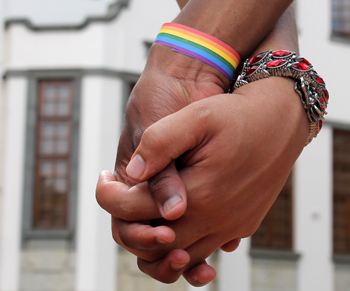
A new office, which will in future be concerned with the human rights issues of the LGBTI community on our campuses, was recently established on our Bloemfontein Campus. Out@Kovsies seeks to address issues of the LGBTI community.
Photo: René-Jean van der Berg
|
A new office, which will in future be concerned with the human rights issues of the LGBTI community on the campuses of the University of the Free State (UFS), was recently established on the Bloemfontein Campus.
This office, Out@Kovsies, is a collaborative initiative between the Centre for Health and Wellness and the Human Rights Desk of the UFS’s Institute for Reconciliation and Social Justice. They also enjoy the support of the non-governmental organisation Networking Aids Community of South Africa (Nacosa).
“There is a great need on our campus for an environment or office where the Kovsie LGBTI community can feel safe and, for various reasons, can call on for help,” says Zanele Thela, coordinator of the LGBTI programme.
Thela says their first goal is to establish a balanced and LGBTI-friendly environment on the UFS campuses through capacity building, dialogue and the programmes which will be presented throughout the year.
The office provides services to both students and staff.
“The Centre for Health and Wellness and Nacosa will work closely together to resolve social concerns on LGBTI issues,” says Thela.
For more information about Out@Kovsies and their services, contact Ms Zanele Thela at ThelaZ@ufs.ac.za